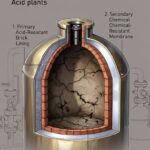Introduction
In the ever-evolving world of engineering education, two distinct undergraduate degree programs have carved their niche: Bachelor of Engineering (BE) and Bachelor of Technology (B.Tech). While these titles may seem interchangeable at first glance, a closer examination reveals intriguing differences that can influence an aspiring engineer’s academic journey. In this article, we embark on a journey to unravel the nuances between BE and B.Tech programs, shedding light on their unique characteristics and guiding prospective students toward informed choices.
A Tale of Two Degrees: Delving into the Distinctions
The world of engineering education is rich with diversity, and the BE and B.Tech degrees stand as distinct embodiments of this diversity. At their core, both programs share the common goal of equipping students with the knowledge and skills required to excel in the dynamic field of engineering. However, their approaches, curriculum, and perceptions set them apart.
Academic Depth vs. Practical Application
A defining feature of the BE program lies in its academic rigor and theoretical focus. BE programs often provide students with a comprehensive understanding of engineering principles, allowing them to explore a wide range of subjects within the field. This academic depth cultivates a holistic perspective and lays the foundation for a lifelong pursuit of engineering knowledge.
On the other hand, B.Tech programs emphasize practical application and hands-on training. These programs are designed to equip students with industry-relevant skills and real-world problem-solving capabilities. The emphasis on practicality ensures that B.Tech graduates are well-prepared to step into the professional arena and contribute effectively to the engineering industry from day one.
Curriculum Variance: Breadth vs. Specialization
BE programs typically encompass a broader spectrum of engineering subjects. Students are exposed to a diverse range of topics, some of which may extend beyond their chosen major. This breadth of knowledge can be advantageous for those who wish to explore various facets of engineering before narrowing down their focus.
Conversely, B.Tech programs offer a more specialized curriculum that aligns closely with the chosen engineering discipline. The curriculum is streamlined to provide in-depth knowledge and expertise in the specific field of study. This focused approach allows B.Tech graduates to dive deep into their chosen area of interest, making them specialists in their domain.
Perception and Recognition
Perceptions of BE and B.Tech programs can vary based on regional and institutional factors. While some regions might associate BE degrees with academic and research-oriented pursuits, B.Tech degrees could be viewed as more industry-oriented and practically relevant. However, it’s important to note that these perceptions are not universally applicable and can vary based on the reputation of the institution and the program’s offerings.
Choosing the Right Path: Factors to Consider
When contemplating the choice between a BE and a B.Tech degree, aspiring engineers should consider their personal aspirations, career goals, and learning preferences. Those inclined toward a comprehensive understanding of engineering principles, with an inclination toward research and academia, might find the BE program more appealing. On the other hand, individuals seeking hands-on experience and a swift transition into the industry might lean toward the practical orientation of a B.Tech program.
Conclusion
In the tapestry of engineering education, both BE and B.Tech degrees add vibrant threads that contribute to the grand mosaic of innovation and progress. The distinctions between these programs reflect the diversity of approaches and the richness of options available to aspiring engineers. Ultimately, the choice between BE and B.Tech hinges on an individual’s aspirations and goals, and understanding these nuances will empower students to embark on a fulfilling and successful engineering journey.












